#american myths
Text
The billionaire myth takes a beating
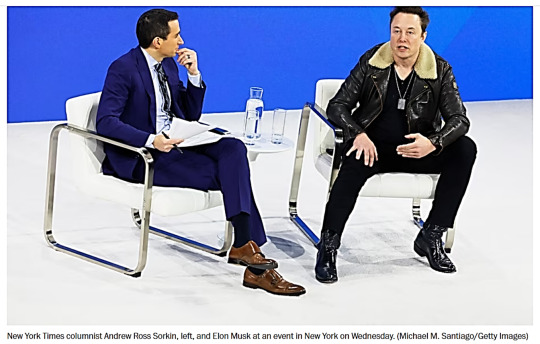
Jennifer Rubin provides some historical perspective as to why Americans idolize alleged self-made/ genius billionaires. This is a gift🎁link so anyone can read the full article, whether or not they subscribe to The Washington Post.
Below are a few excerpts about the history behind the American fascination with certain myths, including the self-made/ genius billionaire, the individualist cowboy, as well as to the perception that "big government" is akin to "socialism," and government departments would be better if they were "run like businesses."
And yet millions still buy into the [genius billionaire] myth, attributing superior knowledge and ability solely on the basis of accumulated wealth. “The American preoccupation with the genius savior dovetails with the American distrust of government and other public institutions; the conventional neoliberal wisdom is that institutions would be better, more efficient, if they were all run like businesses,” wrote Whizy Kim for Vox.
In 2021, historian Heather Cox Richardson located the roots of the mythology in the days of Reconstruction “when white southerners insisted that federal efforts to enable formerly enslaved men to participate in the economy on terms equal to white men were simply a redistribution of wealth, because the agents and policies required to achieve equality would cost tax dollars.” Labeling any effort to deprive Whites of absolute power and riches built on slavery as “socialism,” the anti-government conservative movement forged in the Gilded Age tried but largely failed to dislodge the New Deal.
“The myth of the cowboy — the individualist — was a kind of cover for the attitudes that favored large employers, including mining, railroad, financial and ranching interests,” Knute Berger wrote in 2021 for PBS’s Crosscut, expounding on Richardson’s work. “The bosses discouraged workers from unionizing or acting collectively. To the oligarchs East and West, North and South, the idea of the unrestrained individualism of the cowboy, devoid of responsibility for others, suited a divide-and-conquer strategy very well.”
And yet the movement found new strength in the past 50 years: “They called themselves Movement Conservatives, and they celebrated the cowboy who, in their inaccurate vision, was a hardworking white man who wanted nothing of the government but to be left alone to work out his own future,” Richardson wrote. President Barack Obama in challenging the myth (“You didn’t build that”) attempted to remind these characters that they’ve reaped the benefits of government (which builds the infrastructure, educates the workforce, ensures public confidence in medicines, etc.); for that he was demonized as somehow un-American and anti-capitalist. The episode underscored the degree to which American oligarchs and their political surrogates depend on delusion and denial.
[color emphasis added]
#billionaires#american myths#rugged individualism#idolizing billionaires#elon musk#donald trump#american history#jennifer rubin#the washington post#gift link
88 notes
·
View notes
Text
One thing that truly sucks about "Cryptozoologists" (as someone who is very into cryptozoology) is that they will use Native American myths as a reference of proof for their unverifiable speculation, and then when actual Ndns say "Hey, no, that doesn't quite add up. It doesn't match our perception of this entity...you know, our entity." they will have the audacity to simply shrug their shoulders and say that either:
1) Natives probably just didn't completely understand what we were looking at or
2) That we are simply interpreting our own myths incorrectly.
Like, let that sink in.
Ndns are being told on the daily by kevlar-wearing-gun-toting-edge-lords that we don't understand our own myths or were too "primitive" to grasp the "complexities" of our own entities.
#native american myths arent cryptids#we're still here#and are literally telling you you're wrong#magic#folk magic#spirituality#witchblr#cryptids#cryptozoology
1K notes
·
View notes
Text
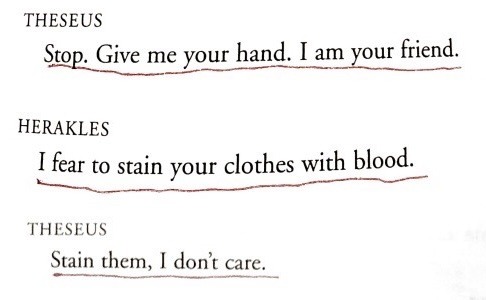
#theseus#herakles#poetry#poem#quoteoftheday#quotes#novel#romance quotes#body paint#books#friendship#love quote#long reads#love#love quotes#lovers#lore olympus#lana is god#gods#greek gods#myth#mythology#greek mythology#icarus#mythology and folklore#norse gods#american gods#magnus chase and the gods of asgard#words#beautiful words
189 notes
·
View notes
Text
Indigenous Storytelling
A lot of the stuff I've posted so far is pretty white western-centric views of telling stories. The whole article is very informative! An excerpt:
"Many of the main characters in Plains Indian mythology never end. Not only are they immortal and indestructible—where they may be killed in one story and are right back at it in another—they also age with the listener. Coyote stories for children have childlike morals; for teens Coyote is a much rougher character; and, for elders only, grandpa Coyote is smart, and his stories are deep and filled with complicated plots and plans."
#american indian#indigenous#native american#stories#myths#storytelling#story structure#story#writing#on writing#rightwriter#writing advice#nanowrimo 2023#preptober#nanowrimo#writer#writing tips
543 notes
·
View notes
Text
i stand by that a better, more sensible, and more intriguing plot for TSATS would have been, instead of retconning literally everything:
Bob is dead (because he was very explicitly absorbed/killed by Tartarus Himself in House of Hades, alongside Damasen), and nobody is going into Tartarus to save him. He made his sacrifice and is gone. However. Remember how the Titans, including Bob, were just kind of kicking around for several years? Particularly. On a cruise ship full of mortals. And Bob happened to be kicking around in general for an extra year versus all the other Titans. And he mythologically sometimes has a mortal demigod son who partook in the Calydonian Boar Hunt (Dryas of Calydon). Yeah.
So turns out, Bob/Iapetus leaves behind a demigod (demititan?) child. And because Nico was pretty much his only friend, he named Nico his child's godfather. And while he's not being left in charge of the child, as a son of Hades and godfather to this kid, Nico is duty-bound to fulfill Bob's last will and go find this like 2 year old to make sure they're safe. So Nico has to undertake this very unusual quest (that raises many questions, such as "demititans are a thing?" and "DOES THIS MEAN THERE'S POTENTIALLY MORE-?!" and "SHOULD WE BE CONCERNED ABOUT THIS?") and is kind of freaking out because. He's the son of Hades! He's notoriously bad with living things, and animals, and definitely small children! Even if he does find this kid and assure they're safe, he is the last person who should be undergoing any kind of quest involving even potentially having to babysit. Fortunately, his boyfriend is the human embodiment of sunshine and calmness and good vibes, and also once helped a nymph give birth, so he feels Marginally More Confident in theoretical demititan babysitting and offers to come along on this Epic Journey of Figuring Out What In Hades' Name Is Up With This Demititan Baby Business.
Proceed with wholesome epic shenanigans quest of Nico and Will scurrying around trying to locate this random OP baby while Nico has an existential crisis about the nature of his powers because he doesn't want to let Bob down! Both for Hades Kid Honor Reasons and because Bob was his friend! But what if he's destined to fail this quest just because of who he is? Because he's simply not built for hanging out with the living/mortals? And Will reassuring him that He Will Probably Not Traumatize The Weird OP Titan Baby And It'll Be Fine, and simultaneously getting a peek into the weird other life Nico leads hanging out with immortals much more than the average demigod, which Nico considers his norm. Bonus shenanigans of both of them getting caught off-guard and culture shocked from where each other's respective worlds (Nico's mostly-immortal versus Will's mostly-mortal) cross over and learning to navigate those for each other - Nico finally starting to make some mortal connections and get glimpses at modern mortal American life, and Will trying not to get his brain literally incinerated while Nico's happily casually catching up with some of his old friends who happen to be literal gods.
#pjo#riordanverse#nico di angelo#will solace#solangelo#long post //#LISTEN I JUST THINK WE DONT NEED TO BE RETCONNING THINGS WHEN THERE IS A HIGHLY INTRIGUING MYTH RIGHT THERE#listen. *listen.* Iapetus in myth has a demigod child? and we're in the series? that's all about demigods?#and had titans running around for 4 years? some primarily on a giant ship mostly full of mortals?#and Iapetus himself was running around for closer to like 5 years?#I AM JUST SAYING. that is enough time. and the right conditions. that there are perhaps demititans now.#that alone is a fascinating plot set-up that ties in basically all previous series inherently and has a reasonable starting point#of *course* Nico would be named Bob's child's godfather!#of *course* Nico would consider it a very important personal duty to see out Bob's final will and go on some quest about it!#and under those conditions it makes *perfect sense* for Nico to want to bring Will along! and that he would be very helpful on said quest!#bringing along a lot of skills and abilities in areas that Nico lacks! that are crucial for a quest like that!#also then immediately the plot becomes Will reassuring Nico about his powers being cool and not evil and him being spooky is okay#while Will is also trying to not literally have his brain melt cause Nico's casually introducing him to a trio of death gods or something#forgetting that Will cannot look upon a god's true form#and Will's dragging Nico across the US while Nico is struggling to keep up cause Will forgot that Nico's not American and not from that era#its cute! it's interesting! it immediately begs the question of a next-gen series focusing on a main cast of demititan kids#dont go back to Tartarus that's lame and overdone and ruins a ton of stuff. dont retcon everything that also ruins a ton#give us the fluffy roadtrip comedy that they clearly wanted to write instead anyways#you can even keep the elements of Nico feeling out of his depth and Will constantly on the verge of death. except it makes sense this time.#and it's kind of funny cause Nico's just freaking out over babysitting and it highlights how much tankier Nico is vs Will#even just in casual interactions. yeah Nico can casually look upon a god's true form. dont worry about it#meanwhile Will is slowly collecting sunglasses the entire trip and layering them up for whenever Nico introduces him to another deity
298 notes
·
View notes
Text

MYTHS: "DRACULA"
ANDY WARHOL // 1981
[screenprint in unique color combination
with diamond dust on board | 38 x 39"]
173 notes
·
View notes
Text
y'know this bit from the Family Day episode from American Dad may as well just be the Trojan War lmao
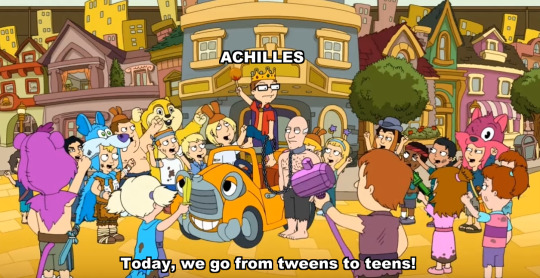

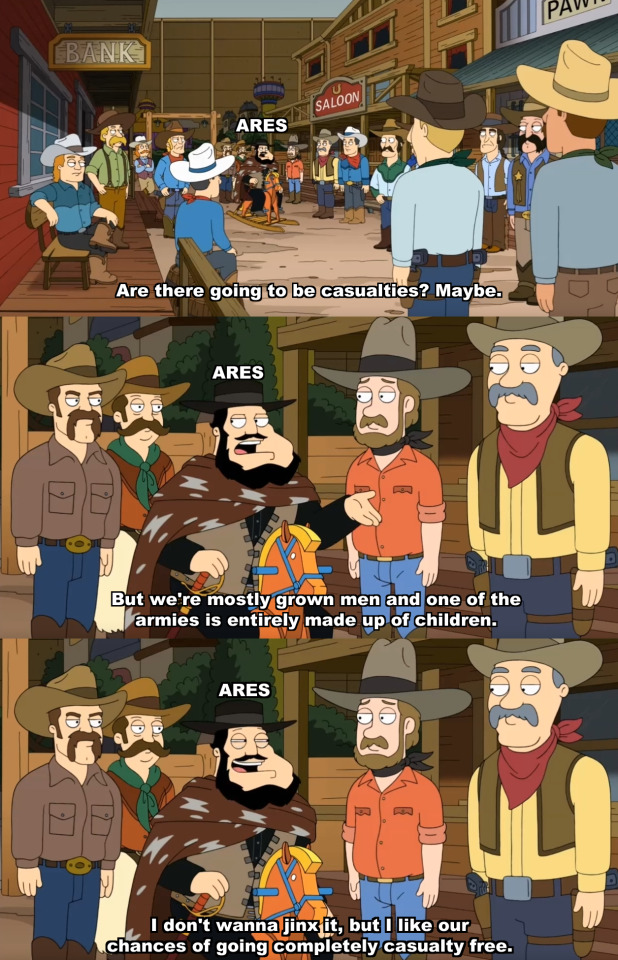
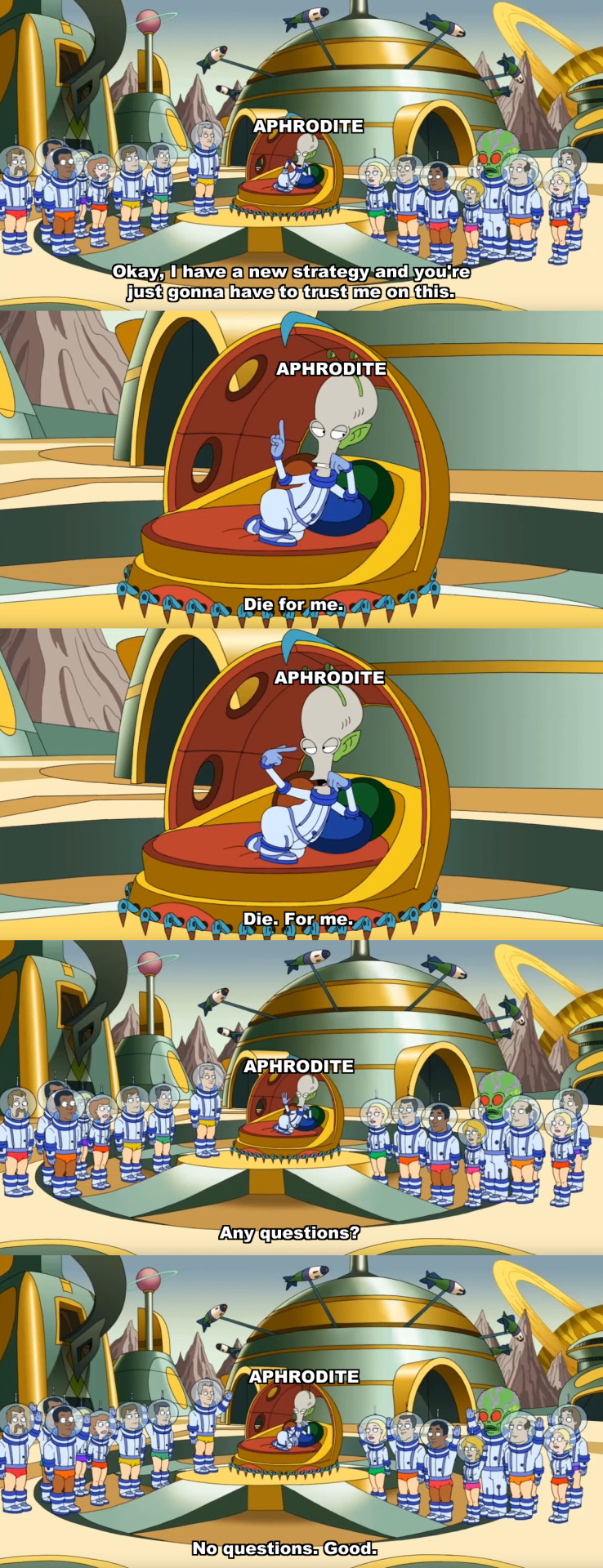
so yeah enjoy this highly specific and yet coincidentally effective meme about the war gods LOL
178 notes
·
View notes
Text
Raven Brought Fire to the First Nations


Raven or Crow is remembered for bringing the First Nations fire. That first bird's courage and altruism still smolders in the hearts of its children.
Flames gave their voices depth, and flames painted elegant feathers in ash-velvet black, though the deep blue sky still shimmers in their wings, and the fire of the sun still burns in their eyes.
This is my watercolor of "The Rainbow Crow". The video I posted yesterday "Crow: The Legend" retells the ancient tale.
#birds#artists on tumblr#art#crows#myths#crow#legends#native american#ravens#corvid#corvids#corvidae#watercolor#original art#my art#my artwork
207 notes
·
View notes
Photo
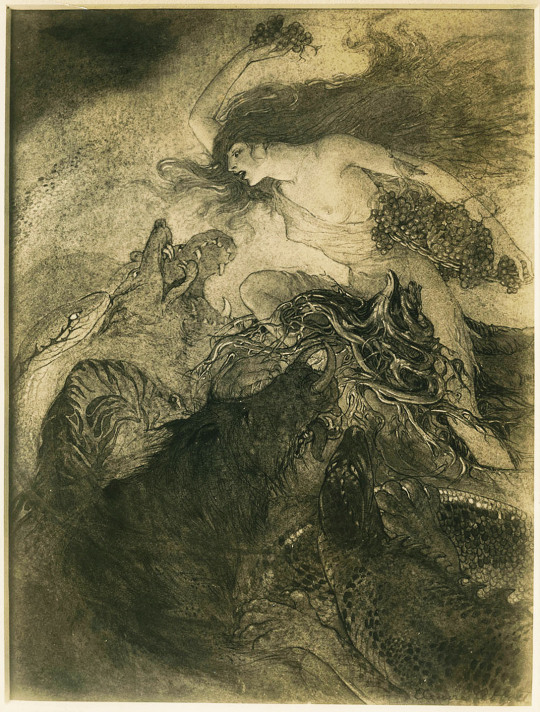
Elenore Abbott (1875-1935), 'Circe', 1914
Source
#elenore abbott#elenore plaisted abbott#american artists#circe#greek myth#greek mythology#vintage art#vintage illustration#american illustrators
676 notes
·
View notes
Text
#talkin#tik tok#affirmative action#model minority myth#asian americans#asian american#black people#xiandivyne#racism
219 notes
·
View notes
Text
Genuinely confused as to how so much of the fandom watched the first 2 CR campaigns and Calamity and yet still ended up in a “Ludinus is right let’s kill all the gods” position. Like it’s baffling to me how much content/context people have just decided to completely forget? We had 2 full campaigns of very positive interactions with the gods and the moment there’s some hypothetical and interesting musing and speculation about their roles in the world from a more disconnected place we’re just throwing that out the window?*
Tbh the number of people who watched episode 4 of Calamity and still saw Asmodeus as sympathetic or having a legitimate point is unsettling to me, but while that’s a related issue it’s not quite the same conversation.
But like legitimately how did we so quickly make a hard turn from “The Stormlord teaches his barbarians to use the power of friendship, he’s a funny kindergarten teacher” memes to…this.
*(This is not, btw a comment on the characters having philosophical debates in-world because I think those are interesting and on-theme for the campaign and are also nearly always concluding with “our personal relationship to individual gods and feelings about them are irrelevant actually, the people trying to destroy them are doing wider harm and are in the wrong and must be stopped.” I’m actually loving the engagement with this by the characters in-universe but the fandom is exhausting me.)
#people stop engaging with all fantasy religion like it’s the same as bigoted evangelical American Christianity challenge#oh also the ‘the gods are colonial invaders’ take is also super weird to me because that’s applying recent human history to what is#basically standard like Greek or Roman creation myth?#like a ton of European pagan lore has a ‘the gods we worship came from afar and tamed the wilds of nature’ narrative#it is a metaphor#cr discourse#legit saw someone this morning confidently posting ‘well Ludinus just is right though!’ and I wanted to close down the whole internet#critical role
574 notes
·
View notes
Note
I was just stalking your fae au and was reading the moose-creature-mimic posts, and I saw you mention that witch can feel when the mimic is trying to break her wards.
Whenever I hear about Fae, my mind immediately goes to the magic system from one of my favourite book series in which people who make wards have to develop wards for specific creatures, and if a creature that they haven’t warded against tries to enter, they can break through, if not break the rest of the wards.
Let’s say for a moment that something like that happens in the Fae AU, where some kind of unfamiliar creature from a foreign civilization comes a knocking on witches doorstep, and is able to break through her wards.
What do you think would happen? If Witch is connected to them, would Witch ‘break’ too? How would Price react to the pure panic and pain shooting through the tethers as an unfamiliar creature breaks through his darling’s wards?
I feel like she would be absolutely broken afterwards (if she survives that is-) Her wards are her safe space, she had never had that happen, she didn’t know what happened.
Would price still trust her to be safe in her own home?
Would SHE still trust her to be safe in her own home??
Just some thoughts 🫣
Oooooooooh. Ok yeah I can do some horror with this. Love the concept. So the Canon answer is that warding in this magic system can be as broad or as narrow as the caster wants. Wards can be weak and they can be broken, but it isn't going to harm the caster, maybe it'll give then a bad feeling but not any actual harm. Not a very good ward if it harms the wrong target IMHO.
For the Witch's home these are wards that are basically generations of people enforcing and reinforcing an all purpose boundary. It's an iron wall that nothing(save humans) is getting through without a permit, and it's tied to Witch both through her magic and her blood. She can feel when things mess with it, but it's like getting asmr, it isn't actually affecting her. She's mentioned before that her wards are threats, so anything that isn't stopped by a simple denial of entry is going to have those threats enacted upon it.
But let's say something broke her wards, let's throw some rocks through the windows and bust shit up. I am going on record to say, this isnt canon:
You feel something crack in the air before you feel it break. The splintering spiderweb of intangible bonds being pushed too far hits you between the ribs and you have to clutch the kitchen counter to stay standing. Something is deeply, desperately, wrong. You don't know how or why(or what) but something is working very hard to get in to your space.
It shouldn't be possible in the first place, you have known this house, these wards, your whole life and you've never felt it give way. You've felt it change, felt it ripple, felt it pop and fizz when it doesn't like what you've let in, but never this. Never the creaking pressure of it bowing inwards and splitting under its own tension. Your fingers wrap tight around your athame as you go to check your back garden, peaking through the curtains. There's nothing.
But you can feel it, you can feel it splintering like a pain in your chest. Tight and radiating out from your sternum. It tingles down your arm, makes your grip feel looser than you know it is. You grab your back door's handle, take a few breathes to give yourself strength, and open it to shoo away whatever is pressing your wards. And very suddenly the splinters give way, like a hole punched through a window.
It feels like all the air has been forced out of your lungs. A cool breeze blows through your door, wrong so very, very, wrong. The smell of moss invades your nose, burdened with the scent of decay. Slime mold oozing against your desperate breaths. You tug your shirt to cover your nose and mouth as the battering ram that had been beating your barrier steps through.
The horns of it scrape your ceiling, actually that bothers you more than it should, you're the one that has to fix it later. Velvet hangs from its antlers, freshly scraped and red, gory and divine. It stands on two clover hooves, and looks at you with malice. If you can even discern an expression from the thing. It's face is completely smooth save for its eyes, or it was smooth. A crack forms along the bottom of its smooth surface, splintering and chipping as it rips its mouth open and screams at you.
The sound is overpowering, dizzying, you feel your ears pop and then the noise is gone, replaced by a persistent dull ringing. You truly wonder when your life got so interesting. You hate interesting. You blame Price.
You cough, gag. You have to drop your makeshift mask to retch against the stench of rotten decay on this thing. It smells like death, weeks old bodies left to fester where no one will find them. You gag again, fingers curling around your throat as you try to keep you athame raised.
Your wards are silent, you home is silent, and you realize that you've never actually experienced true silence. Something is always buzzing or humming with magic, you always have music playing or bottles clinking, you're always surrounded by sound. Now it's all stopped. Even the ringing in your ears has settled into a cottony muffle. You can't feel any of your magic. Your numbed to it.
You drop your hand from your throat to your chest. You can't even feel the tethers there. Your fingers move over the fabric of your shirt without catching, there's not tightness to pull, not warmth to catch. You feel cavernous, empty past empty. What the fuck is that thing.
Whatever it is it seems to have finished its evaluation of you. Finished working whatever spell it was weaving. It takes a step towards you. You don't wait for it to take another before running. Scrambling away from the broken seal of the door towards whatever is heavy and throw-able.
You do your best not to let blind panic take over, to not just run wherever feels safe. You've always thought it was silly when people in horror movies don't do the smart thing, but you've never been in a horror movie before. You bolt towards your bedroom. It's the best guarded room in the house. Even if you can't feel your magic it should still be there. Right?
You feel the swip of the things claws through the air as it tries to grab you. You run straight past your front door without a second thought, sure you don't want whatever that is to be unleashed on the general public. It's claws dig deep gouges into the plaster of your wall, and you pray it doesn't do the same to your bedroom door. You know it will, but it can't hurt to pray. You're not in the mood to be picky with magic right now.
You get your bedroom door closed just in time to hear it splinter as the creature throws itself against it. You don't bother with chalk, digging your athame into the door and scratching sigils and circles as quickly as you can. When you tap them they sit absolutely dead. You smack your hand against your messy circle, willing the magic to respond. You smack it again as the creature throws itself against your door. The circle stays as it was, motionless, silent, still as a drawing.
You are suddenly much more comfortable allowing panic to overtake you. If you're powerless there's really no reason to keep your emotions in check. Your breath heaves, short and quick as you back away from your door and look towards your window. No magic swirls, no books rip themselves from your shelves, your panic heightens and nothing happens. How mundane.
One of the creatures claws punches a hole through the center of your circle, then another, and another. You back towards your window as it grips the wood of the door and attempts to pull it from its hinges. Your fingers push at your window, try to find the seams of it, try to get it open. It doesn't budge, it feels like it's been painted on. You bang your fist against the glass without so much as a crack. The wood behind you splinters. The crunch of it deafening over the silence.
"Price, Price, fuck I am not fucking around Price please," You beg pressing yourself back against the window as the creature drops pieces of the door onto your floor. Even if your magic doesn't work his still must. You've never hear of a fae not responding to their name. Granted you don't know the full thing, you don't know if that's really his name and not just a nickname. It might hold no power without the tethers between you. That doesn't stop you from saying it like a prayer, hoping if you speak him into existence enough times he might come and save you.
Your shoulders are grabbed by an invisible force as you are physically shaken. Your ribs shake, muscles tensed too tight to even take a breath.
There is a wet ache spreading over your stomach, you begin to tilt your head down to see what's wrong and Price catches you. His hand holds the back of your head, pulls it back up and shoves it against his shoulder. "Don't look," he tells you just as quickly as he'd stopped you. You nod against his shoulder.
He pulls something from you, rips the proverbial bandaid off, and you bite him at the pain. It feels like your heart has been knocked out of place, like your ribs have been played as a xylophone. Your stomach twists on itself. Suddenly you are back in your kitchen staring at the cabinets, the space where the creatures antlers had scraped the ceiling. The scratches are still there.
Then the shaking starts. Every muscle in your body starting to unspool in a violent shudder that must quake the very earth you stand on. It's loud. The house is so loud. The wards are practically screaming at you, you threshold wails and sobs where it has been brutalized. Your back door is still swung open to red and orange leaves, a lovely autumn day that leaks the smell of wet earth into your home. Price turns to follow your shaking gaze and kicks the door shut behind him.
"What-" You can't get anything more out around the aftershocks of panic. You're sure your house must look like a war zone.
"Probably some American invention," Price mumbles, "You weren't under long, deep breaths."
You suck in a breath, press your know into his shirt to smell the cool tobacco. It helps. Price keeps a firm grip on the back of your head, keeps you looking where he wants you to while his other hand does something. He touches you in a way you can't explain. It's almost metaphysical the way he zips you up, just on the right side of freezing. You can almost feel his fingers moving muscle and viscera out of the way as he does whatever he's doing. Fixing whatever just happened.
"Fucking hell your wards shredded that thing, surprised it even had the strength to touch you," There's something at the edge of Price's voice, fear your think. You're not sure what he's scared of, it isn't a comforting sound.
"How're you-" You try to focus on the important questions, like why Price hasn't been shredded.
"You lit up like a damn Christmas tree, thought I was gonna have my own attack with the panic you shot my way," He draws his hand away from your stomach, apparently finished with his fussing, "wards were too busy to notice me slip in."
Makes sense, even now they're too busy with repairs to pay attention to your regular.
"It broke my door," It's funny what you latch onto once shock starts to set in. "What did it want?"
"Same thing we all want," Price tells you, and you hate hearing him say it(we), because he doesn't mean it kindly, "you."
#the way i gotta nerf witch to put her in danger#genuinely her wards cannot be broken#youre trying to breach fort fucking knox my friend#oc: witch#1fae1#fae!Price#it feels very ooc writing witch with broken magic#idk if i like this one#very off the cuff and what not#the words simply pour out of me if im writing past 10pm#a ghost possesses me and compels me to write#anyway this is more creatures tryin to eat Witch#what a tasty snack she is no wonder price wants her all to himself#american myths genuinely scare me so bad#but this is a hannibal inspired monster
213 notes
·
View notes
Text



The weirdest, least successful "white supremacy" ever.
#The Rabbit Hole#model minority#model minority myth#myth of the model minority myth#homework#do your homework#household income#Asian Americans#merit#make merit matter#meritocracy#religion is a mental illness
69 notes
·
View notes
Text

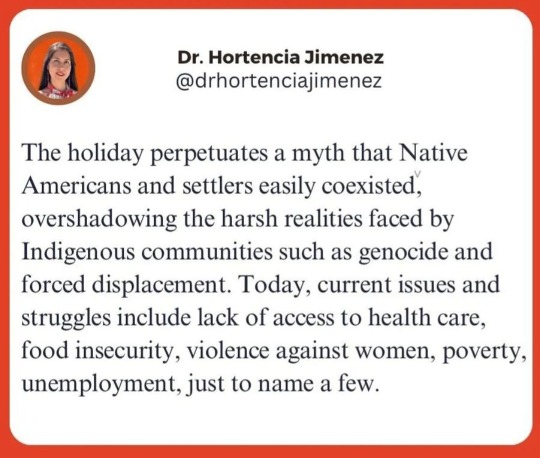
Happy Thanksgiving to all who celebrate! May this be a time of gratitude, joy, and love for you and yours.
I would also suggest making this a time to acknowledge the National Day of Mourning by honoring, remembering, and learning about the death and suffering of indigenous Americans due to settler colonialism and its present-day effects.
Again, I hope everyone has much to be thankful for in these holiday times. I also hope these times can serve as an opportunity to take a clear-eyed look at American history and challenge the myths that serve as the foundation for many Amercians' understanding of our past and present.
#thanksgiving#happy thanksgiving#history#genocide#ethnic cleansing#american indians#native americans#politics#us politics#progressive#imperialism#narional day of mourning#colonialism#settler colonialism#indigenous history#thanksgiving myths#first nations
93 notes
·
View notes
Text




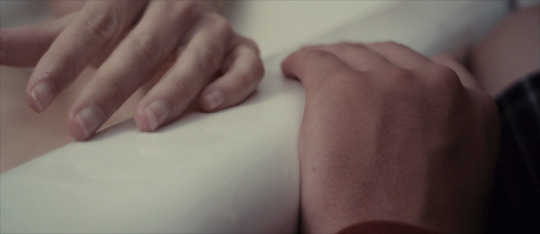


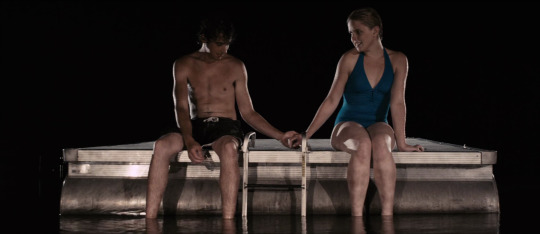
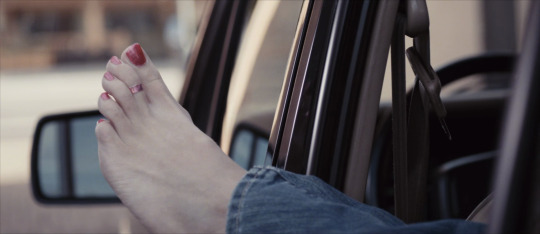
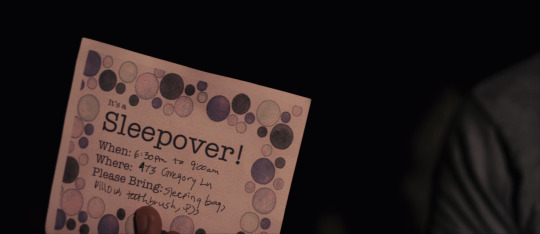
The Myth of the American Sleepover (David Robert Mitchell, 2010)
#films watched in 2023#david robert mitchell#The Myth of the American Sleepover#seis#2010#Claire Sloma#Marlon Morton#Amanda Bauer#Brett Jacobsen#hands#teenagers#summer#feet#dramedy#independent cinema#swimmin pool#smoke
80 notes
·
View notes
Text
Why the Fed wants to crush workers
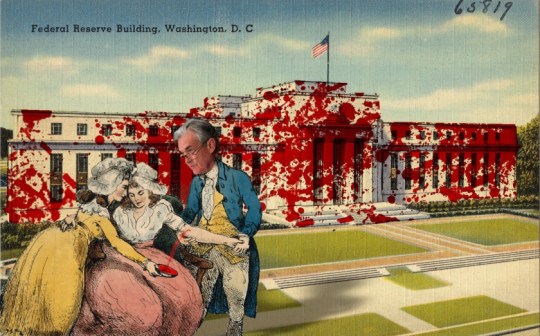
The US Federal Reserve has two imperatives: keeping employment high and inflation low. But when these come into conflict — when unemployment falls to near-zero — the Fed forgets all about full employment and cranks up interest rates to “cool the economy” (that is, “to destroy jobs and increase unemployment”).
An economy “cools down” when workers have less money, which means that the prices offered for goods and services go down, as fewer workers have less money to spend. As with every macroeconomic policy, raising interest rates has “distributional effects,” which is economist-speak for “winners and losers.”
Predicting who wins and who loses when interest rates go up requires that we understand the economic relations between different kinds of rich people, as well as relations between rich people and working people. Writing today for The American Prospect’s superb Great Inflation Myths series, Gerald Epstein and Aaron Medlin break it down:
https://prospect.org/economy/2023-01-19-inflation-federal-reserve-protects-one-percent/
Recall that the Fed has two priorities: full employment and low interest rates. But when it weighs these priorities, it does so through “finance colored” glasses: as an institution, the Fed requires help from banks to carry out its policies, while Fed employees rely on those banks for cushy, high-paid jobs when they rotate out of public service.
Inflation is bad for banks, whose fortunes rise and fall based on the value of the interest payments they collect from debtors. When the value of the dollar declines, lenders lose and borrowers win. Think of it this way: say you borrow $10,000 to buy a car, at a moment when $10k is two months’ wages for the average US worker. Then inflation hits: prices go up, workers demand higher pay to keep pace, and a couple years later, $10k is one month’s wages.
If your wages kept pace with inflation, you’re now getting twice as many dollars as you were when you took out the loan. Don’t get too excited: these dollars buy the same quantity of goods as your pre-inflation salary. However, the share of your income that’s eaten by that monthly car-loan payment has been cut in half. You just got a real-terms 50% discount on your car loan!
Inflation is great news for borrowers, bad news for lenders, and any given financial institution is more likely to be a lender than a borrower. The finance sector is the creditor sector, and the Fed is institutionally and personally loyal to the finance sector. When creditors and debtors have opposing interests, the Fed helps creditors win.
The US is a debtor nation. Not the national debt — federal debt and deficits are just scorekeeping. The US government spends money into existence and taxes it out of existence, every single day. If the USG has a deficit, that means it spent more than than it taxed, which is another way of saying that it left more dollars in the economy this year than it took out of it. If the US runs a “balanced budget,” then every dollar that was created this year was matched by another dollar that was annihilated. If the US runs a “surplus,” then there are fewer dollars left for us to use than there were at the start of the year.
The US debt that matters isn’t the federal debt, it’s the private sector’s debt. Your debt and mine. We are a debtor nation. Half of Americans have less than $400 in the bank.
https://www.fool.com/the-ascent/personal-finance/articles/49-of-americans-couldnt-cover-a-400-emergency-expense-today-up-from-32-in-november/
Most Americans have little to no retirement savings. Decades of wage stagnation has left Americans with less buying power, and the economy has been running on consumer debt for a generation. Meanwhile, working Americans have been burdened with forms of inflation the Fed doesn’t give a shit about, like skyrocketing costs for housing and higher education.
When politicians jawbone about “inflation,” they’re talking about the inflation that matters to creditors. Debtors — the bottom 90% — have been burdened with three decades’ worth of steadily mounting inflation that no one talks about. Yesterday, the Prospect ran Nancy Folbre’s outstanding piece on “care inflation” — the skyrocketing costs of day-care, nursing homes, eldercare, etc:
https://prospect.org/economy/2023-01-18-inflation-unfair-costs-of-care/
As Folbre wrote, these costs are doubly burdensome, because they fall on family members (almost entirely women), who have to sacrifice their own earning potential to care for children, or aging people, or disabled family members. The cost of care has increased every year since 1997:
https://pluralistic.net/2023/01/18/wages-for-housework/#low-wage-workers-vs-poor-consumers
So while politicians and economists talk about rescuing “savers” from having their nest-eggs whittled away by inflation, these savers represent a minuscule and dwindling proportion of the public. The real beneficiaries of interest rate hikes isn’t savers, it’s lenders.
Full employment is bad for the wealthy. When everyone has a job, wages go up, because bosses can’t threaten workers with “exile to the reserve army of the unemployed.” If workers are afraid of ending up jobless and homeless, then executives seeking to increase their own firms’ profits can shift money from workers to shareholders without their workers quitting (and if the workers do quit, there are plenty more desperate for their jobs).
What’s more, those same executives own huge portfolios of “financialized” assets — that is, they own claims on the interest payments that borrowers in the economy pay to creditors.
The purpose of raising interest rates is to “cool the economy,” a euphemism for increasing unemployment and reducing wages. Fighting inflation helps creditors and hurts debtors. The same people who benefit from increased unemployment also benefit from low inflation.
Thus: “the current Fed policy of rapidly raising interest rates to fight inflation by throwing people out of work serves as a wealth protection device for the top one percent.”
Now, it’s also true that high interest rates tend to tank the stock market, and rich people also own a lot of stock. This is where it’s important to draw distinctions within the capital class: the merely rich do things for a living (and thus care about companies’ productive capacity), while the super-rich own things for a living, and care about debt service.
Epstein and Medlin are economists at UMass Amherst, and they built a model that looks at the distributional outcomes (that is, the winners and losers) from interest rate hikes, using data from 40 years’ worth of Fed rate hikes:
https://peri.umass.edu/images/Medlin_Epstein_PERI_inflation_conf_WP.pdf
They concluded that “The net impact of the Fed’s restrictive monetary policy on the wealth of the top one percent depends on the timing and balance of [lower inflation and higher interest]. It turns out that in recent decades the outcome has, on balance, worked out quite well for the wealthy.”
How well? “Without intervention by the Fed, a 6 percent acceleration of inflation would erode their wealth by around 30 percent in real terms after three years…when the Fed intervenes with an aggressive tightening, the 1%’s wealth only declines about 16 percent after three years. That is a 14 percent net gain in real terms.”
This is why you see a split between the one-percenters and the ten-percenters in whether the Fed should continue to jack interest rates up. For the 1%, inflation hikes produce massive, long term gains. For the 10%, those gains are smaller and take longer to materialize.
Meanwhile, when there is mass unemployment, both groups benefit from lower wages and are happy to keep interest rates at zero, a rate that (in the absence of a wealth tax) creates massive asset bubbles that drive up the value of houses, stocks and other things that rich people own lots more of than everyone else.
This explains a lot about the current enthusiasm for high interest rates, despite high interest rates’ ability to cause inflation, as Joseph Stiglitz and Ira Regmi wrote in their recent Roosevelt Institute paper:
https://rooseveltinstitute.org/wp-content/uploads/2022/12/RI_CausesofandResponsestoTodaysInflation_Report_202212.pdf
The two esteemed economists compared interest rate hikes to medieval bloodletting, where “doctors” did “more of the same when their therapy failed until the patient either had a miraculous recovery (for which the bloodletters took credit) or died (which was more likely).”
As they document, workers today aren’t recreating the dread “wage-price spiral” of the 1970s: despite low levels of unemployment, workers wages still aren’t keeping up with inflation. Inflation itself is falling, for the fairly obvious reason that covid supply-chain shocks are dwindling and substitutes for Russian gas are coming online.
Economic activity is “largely below trend,” and with healthy levels of sales in “non-traded goods” (imports), meaning that the stuff that American workers are consuming isn’t coming out of America’s pool of resources or manufactured goods, and that spending is leaving the US economy, rather than contributing to an American firm’s buying power.
Despite this, the Fed has a substantial cheering section for continued interest rates, composed of the ultra-rich and their lickspittle Renfields. While the specifics are quite modern, the underlying dynamic is as old as civilization itself.
Historian Michael Hudson specializes in the role that debt and credit played in different societies. As he’s written, ancient civilizations long ago discovered that without periodic debt cancellation, an ever larger share of a societies’ productive capacity gets diverted to the whims of a small elite of lenders, until civilization itself collapses:
https://www.nakedcapitalism.com/2022/07/michael-hudson-from-junk-economics-to-a-false-view-of-history-where-western-civilization-took-a-wrong-turn.html
Here’s how that dynamic goes: to produce things, you need inputs. Farmers need seed, fertilizer, and farm-hands to produce crops. Crucially, you need to acquire these inputs before the crops come in — which means you need to be able to buy inputs before you sell the crops. You have to borrow.
In good years, this works out fine. You borrow money, buy your inputs, produce and sell your goods, and repay the debt. But even the best-prepared producer can get a bad beat: floods, droughts, blights, pandemics…Play the game long enough and eventually you’ll find yourself unable to repay the debt.
In the next round, you go into things owing more money than you can cover, even if you have a bumper crop. You sell your crop, pay as much of the debt as you can, and go into the next season having to borrow more on top of the overhang from the last crisis. This continues over time, until you get another crisis, which you have no reserves to cover because they’ve all been eaten up paying off the last crisis. You go further into debt.
Over the long run, this dynamic produces a society of creditors whose wealth increases every year, who can make coercive claims on the productive labor of everyone else, who not only owes them money, but will owe even more as a result of doing the work that is demanded of them.
Successful ancient civilizations fought this with Jubilee: periodic festivals of debt-forgiveness, which were announced when new monarchs assumed their thrones, or after successful wars, or just whenever the creditor class was getting too powerful and threatened the crown.
Of course, creditors hated this and fought it bitterly, just as our modern one-percenters do. When rulers managed to hold them at bay, their nations prospered. But when creditors captured the state and abolished Jubilee, as happened in ancient Rome, the state collapsed:
https://pluralistic.net/2022/07/08/jubilant/#construire-des-passerelles
Are we speedrunning the collapse of Rome? It’s not for me to say, but I strongly recommend reading Margaret Coker’s in-depth Propublica investigation on how title lenders (loansharks that hit desperate, low-income borrowers with triple-digit interest loans) fired any employee who explained to a borrower that they needed to make more than the minimum payment, or they’d never pay off their debts:
https://www.propublica.org/article/inside-sales-practices-of-biggest-title-lender-in-us
[Image ID: A vintage postcard illustration of the Federal Reserve building in Washington, DC. The building is spattered with blood. In the foreground is a medieval woodcut of a physician bleeding a woman into a bowl while another woman holds a bowl to catch the blood. The physician's head has been replaced with that of Federal Reserve Chairman Jerome Powell.]
#pluralistic#worker power#austerity#monetarism#jerome powell#the fed#federal reserve#finance#banking#economics#macroeconomics#interest rates#the american prospect#the great inflation myths#debt#graeber#michael hudson#indenture#medieval bloodletters
464 notes
·
View notes